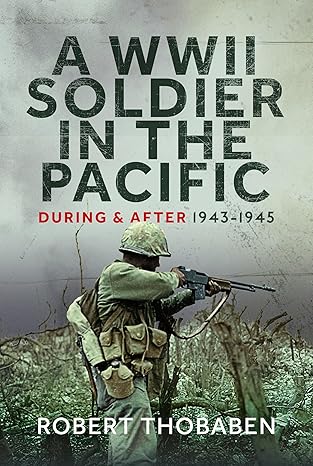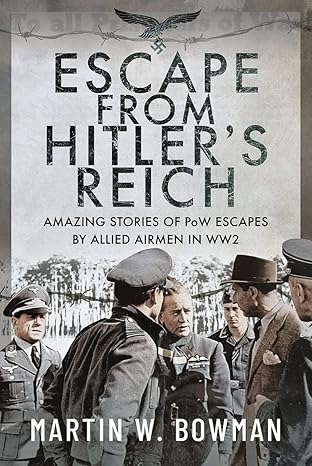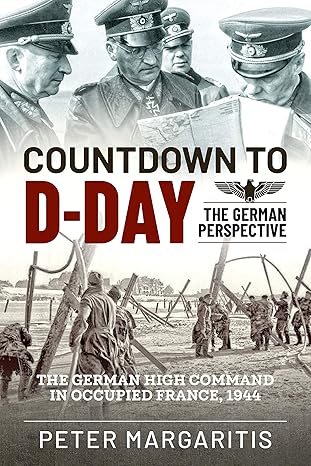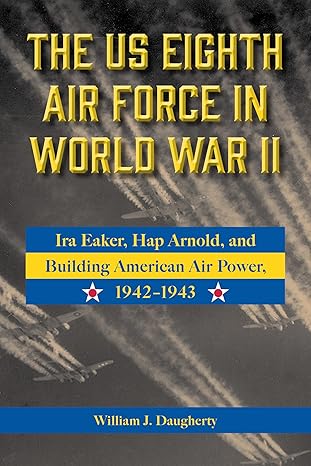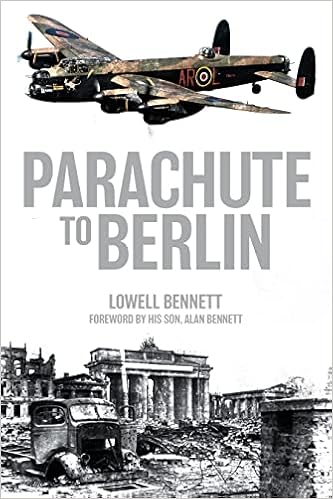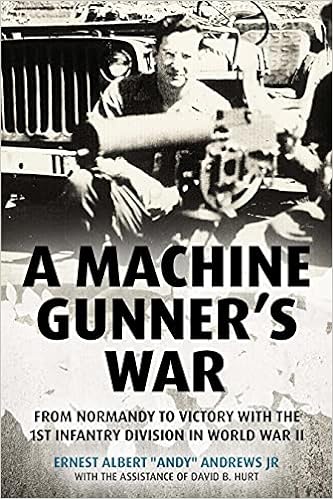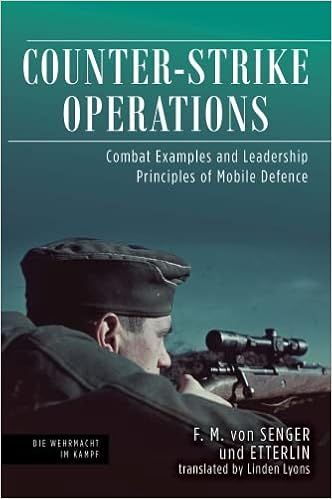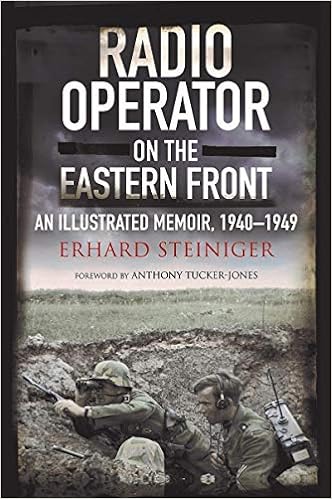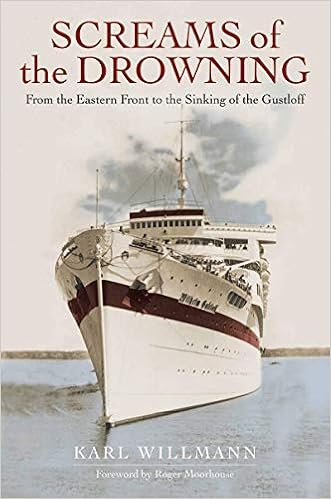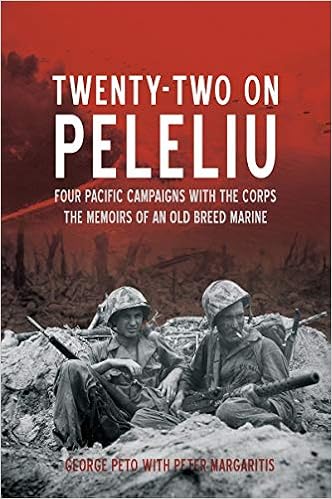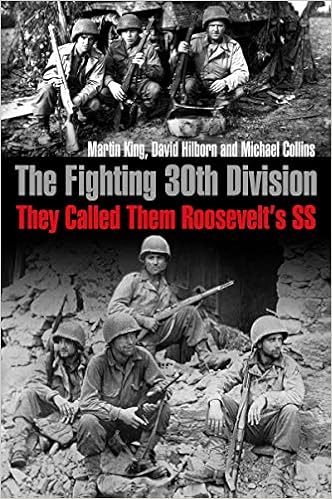Hell Ship - From the Philippines to Japan
By Robert C. Daniels
U.S. Marine Edmond Babler was forced to surrender to the Japanese Imperial Army in April 1942 with the fall of the Island fortress of Corregidor in the Philippines. Like many of his fellow POWs, after spending two years of hard labor under what can only be described as horrendous and savage slave labor conditions in the Philippine Islands of Luzon and Palawan, he was transported to the Japanese main islands in what would be known to the prisoners as a Hell Ship. What follows comprises Chapter 7 of 1220 Days: The story of U.S. Marine Edmond Babler and his experiences in Japanese Prisoner of War Camps during World War II, and is his personal account of that trip using his vernacular and colloquialisms whenever possible, including the phonetic form in which Ed originally wrote and remembered several Japanese phrases. It is his views and memories, with no apologies made nor intended to conform to the modern concept of political correctness. The author has sparingly inserted clarifications and corroborating information in encapsulated brackets where deemed necessary to give the reader a better understanding of the ‘overall picture’ of the war in relation to what Ed was experiencing.
We were marched from Bilibid Prison to the Manila docks where an old, rusty transport was tied. The dock was very crowded; besides about 1,800 of us prisoners, there were roughly 500 Japanese guards, numerous Filipino dockworkers, and a lot of other people that seemed to have just come out to watch. It was like a madhouse, especially with the guards being both in an angry mood and in a hurry.
After we reached the dock, the guards continued right on yelling their speedo, speedo [hurry, hurry] and hurriedly prodded us up the gangplank and onto the transport with their bayonets. After reaching the top of the gangplank and the ship’s deck we were herded down a ladder and into the hold. This took quite a bit of time with the guards crowding more and more of us into the hold, pushing and shoving the men as they went.
When there were about 700 of us in the hold I thought the Japs would finally stop sending more down the ladder. But they didn’t. They kept yelling, “Koodo, koodo,” [attention, attention] telling us in the hold to move back to make room for more prisoners. We thought, “Hell, they can’t get any more in,” but the guards continued to push and shove another 200 or so men down the ladder. Under normal circumstances they probably wouldn’t be able to get more than 400 men in the hold, but because we didn’t have anything much other than what we were wearing, they were able to crowd around 900 of us in. Hell, it was so crowded there wasn’t enough space for all the men to sit down at the same time, resulting in some standing, some sitting, and some lying down on the steel deck, and steel is not a comfortable platform for resting. It was just too damn crowded and I instinctively knew there would certainly be problems when night came and everyone would want to lie down to sleep.
As soon as the last man climbed down the ladder the Japs closed the hatch, leaving us in pitch darkness. Fresh air could only come in through the opened hatch, and with the hatch closed it soon became as hot as hell inside our hold. Within an hour, perspiration was running down our backs and bellies as if it was rainwater, and, as I feared, men soon began arguing about space. Some blows were exchanged, but, like in the cattle cars we had ridden in on our way to the POW Camp at Cabanatuan two years earlier, there really wasn’t enough room to get up a good swing. The men wanted fresh air and were griping and yelling for the Japs to open the damn door. The noise in the hold grew, and all of a sudden the hatch door opened. Six Jap guards stood in the hatchway and as they yelled, “Koodo, koodo,” they pulled the slides back on their automatic rifles and aimed them directly at us. It was plain to all of us that the Japs were ready to fire, and the noisemakers quickly shut up. Once the noise settled down the Japs again closed the hatch. If the men hadn’t quieted up when they did, I truly believe the Japs wouldn’t have hesitated in shooting twenty-five or thirty of us, just that quick.
About an hour after the guards threatened us with their automatic rifles, they again opened the hatch. It was good to see daylight and sunshine once more. I can tell you that one quickly learns to appreciate fresh air after spending time in such a tight spot. Throughout our trip, for the most part, the Japs kept the hatch door open during the days, but closed it every evening as soon as it became dark outside, which made for some very long, hot, stuffy nights.
We more or less had to cooperate with each other in the hold, taking turns sitting, standing, and lying. Nevertheless, there were a few wise guys that wanted to be comfortable themselves without regards to the next man. This type of behavior led to arguments and name calling such as “You dirty bastard,” “You damn fool,” or “You son of a bitch.” Many of the men being yelled at for causing the disturbances just laughed or cussed at the guys who did the yelling. We had to shut both of those kinds of men up for fear the Japs would open fire at us for making noise, and for our own sanity.
After about six or seven days en route, everyone was so damn hot, tired, and hungry that no one had any energy to waste on yelling at the man next to him, which took care of the arguments. Twice a day the Japs would lower three wooden buckets into the hold. Two contained rice and the third millet soup. Many of the times the rations weren’t sufficient and a dozen or more men would miss a meal because the man serving the rations didn’t give equal portions. While trapped in this hold, I soon learned things about a few individuals that I previously hadn’t known. I previously didn’t think people were so greedy and didn’t give a damn about the next man’s well being, knowing that the next man was just as hungry as they were.
We were also constantly thirsty, since our dear little friends didn’t give us any water to drink during our voyage. I figured they thought the millet soup held enough water to take care of our thirst. My mouth, like everyone else’s, soon became dry as hell and my lips were cracked and bleeding. Just one drink of cold water every day would have been refreshing. A cold bottle of beer wouldn’t have been bad either; even Saki would have been ok.
The ulcers on our legs became troublesome, and with no medicine to heal the ulcers the flies kept settling on them. Besides the flies, large roaches were also crawling on us as well as upon the filthy steel deck, which was covered with urine and excreta. The Japs only sent down one bucket a day for all 900 of us to use as a benjo. One bucket for 900 men was hardly enough, and many of these men had diarrhea or dysentery and couldn’t even wait for it to reach them. Many were the times when a man filled his pants; cleaning them was very difficult. We poor, suffering prisoners couldn’t help ourselves, I included; the deck soon became a real mess.
Everyone was so hot and sweaty, and the stench was terrible, especially at night when the hatch door was closed and there wasn’t any fresh air coming in. During the nights quite a number of men would pass out; they couldn’t get out of the hold until morning when one or more were found dead, more or less from suffocation. A little cold water would have saved many of these men’s lives. My mouth was so damn dry that I had no saliva.
All through the night you could hear someone complain, “Get the hell off my back,” “Get your damn rear end out of my face,” “Quit farting.” Or “Move over you bastard or I’ll kill you,” “It’s too damn hot with you so damn near,” “I can’t sleep with you bums talking all night.” We just had to face it, it was hell and the Japs wouldn’t help. It was especially difficult for men like me who had respiratory problems because it was very hard to breathe in the hot, smelling, stifling air. [Ed had previously came down with Pleurisy – an inflammation of one or both membranous pleura sacs lining the thoracic cavity and enveloping the lungs – when at a POW camp on the Philippine Island of Palawan.] I always welcomed the morning when the hatch door was opened and the fresh air came in—what little actually did come in.
On one particular day two men began fighting in the hold, resulting in creating so much noise that the guards fired two shots in the air; the men quickly stopped their fight. Fighting in the hold was foolish for several reasons. First, because there was really no space to fight in—no space to stand up and swing at each other, and no space to wrestle. Second, because a man needed all his strength just to survive, and fighting just wasted his energy. And third, especially after this last incident, everyone knew that the Japs wouldn’t hesitate to shoot in the event of any more fighting, or too much noise for that matter. Either way, after this last incident, I was quite positive there would be very few, if anymore arguments or fist-a-cuffs for the remainder of our trip.
It really did stink in the hold during the night because of all of the sweaty bodies and the gas released from the excreta. Most of the excreta was near the hold opening, because that’s where the really sick men with diarrhea and dysentery usually stayed. They had to be boosted topside more often than the rest of us to be sprayed down with fire hoses in order to be cleaned off.
Many of the men wanted to lie or sit directly beneath the hatch door. The first few days of the trip I also stayed near the hatch opening. During the nighttime this spot was the best location, but during the day it was the worst. I found that it was very hot right under the opened hatch in the daytime with the sun burning down, and it was just too much for the body to endure for ten hours a day. I also realized that it was not only hot there, but there was also a lot of confusion there. Soup would spill over from time to time as it was lowered down, and on several occasions the Japs turned the fire hose directly down into the hold. If you were at the bottom of this opening, you received the brunt of both this spilled soup and the fire hose. In addition, men had to be lifted up and helped down the ladder, and the benjo buckets filled with urine and excreta were lowered and raised by a rope; several times these also spilled and fell on the men directly below the opening. And it was the men just below the hatch that the guards had threatened to shoot those times when there was too much noise in the hold.
The men that did stay there also sweated profusely and fell over like flies. When one of the men would faint, several of us would have to boost him up the ladder in order to get him topside were he could cool off for a while. The guards would hose these guys off with a fire hose and then send them back down again. I recall several times that men collapsed completely from heat stroke and required more than just a cooling off.
Therefore, I decided to make my way back towards the bulkhead where, although it was hot, the sunrays wouldn’t be beating down on me all day long and I would be away from a lot of the confusion. It took about two days to inch my way back, because everyone thought that the spot they were in was the best in the hold and no one wanted to give theirs up. Many of the men would not move an inch until I told them that I didn’t want their spot; that I was just moving to the bulkhead. Once I finally made it back there, I found there was sufficient space to lie down and rest, or just sit with my back leaning against the steal bulkhead.
I estimated that the temperature directly below the hatch opening was about 110 to 120 degrees, whereas the temperature by the bulkhead was only about 100 degrees. After the first few days, the men in the hold, especially those that were by the hatch opening, stood or laid about dopey and dizzy, to the extent that a lot of them didn’t even know anymore where they were or what was happening. Several of them sat on one spot for days on end and didn’t move six inches, while others would lie in one spot until someone kicked and pushed them aside; others appeared to just sleep for days. When I saw a man in bad shape due to malaria or overcome by heat, I would tell others to allow the man to have more space or let him get some fresh air.
Not only did I have more space to relax in the rear of the hold by the bulkhead, I also didn’t have to listen to a lot of B.S. from the men next to me. This gave me the chance to quietly think to myself, and I began to wonder how long it would take to get to Japan. I figured it would probably take two, three, or even four times as long as a normal trip because there were American submarines patrolling the waters. The regular shipping routes would be watched by the subs, forcing our transport to take a zigzag course, lengthening our trip’s distance and time.
The nights back by the bulkhead were also different than the nights I had spent by the hatch opening. Back there by the bulkhead I could very plainly hear the huge waves splashing against the side of the ship and the pounding of the ship’s engines, which seemed to struggle harder when the sea was rough. I could hear the ship creak when the waves were triple their normal size during the storms we passed through, tossing the ship around. It rained all through many of the nights, and the thunder and lightning, coupled with the complete silence throughout the ship, with the exception of the sound of the engines, created a scary atmosphere during these dark nights. Every noise was very clear, and several times I thought the old transport might even split at the seams. But, evidentially, it had made these trips before and was still seaworthy.
It was pitch dark at night in the hold, and a feeling of uneasiness would come over me. I would also get an inner feeling that at any time an American submarine might send a torpedo through the side of the ship; a man’s chance of getting out of the hold was nil.
I still remember that I was very hot on the Hell Ship and had probably a hundred nightmares. Millions of things went through my mind back then, events that happened during my entire life. Events when I was a little boy in Maplewood, Wisconsin, working with my father in his blacksmith shop, events from my boxing and wrestling days in Wisconsin and Michigan, of riding the rails, and many of the other things I had done. It seemed that during those days and nights onboard that old transport I covered almost my entire life up until that time.
While onboard the ship, I found that when one is in a ticklish situation one begins to think about death. I pictured myself jumping overboard after the ship had been torpedoed by an American submarine and being shot at, along with my buddies, by Japanese machineguns as we tried to swim away. This thinking brought back memories of my stay in Cabanatuan, Bilibid Prison, Palawan, McKinley Field, Nielsen Field, and Zeblon Field [all of which were POW camps in the Philippines], and the troubles I had at each of these places; the dysentery, the pleurisy, my smashed foot, the beatings. And I remembered my leg operation, and the fact that it could have gone either way.
To this very day I can still picture the nights when the transport’s engines would stop. All the lights were out and there were no voices to be heard; many of the men were probably praying. This created an atmosphere of pure loneliness, even though there were 999 other men surrounding me. My heart would beat faster until the engines again started up.
I believe everyone had mixed reactions as to what he would do in the event of an emergency. It somehow seemed easier to accept anything that happened during the daylight hours than at night. I always thought that American pilots and sub captains would be able to identify the Japanese ships that were carrying prisoners. I was wrong. I later learned that the doctor that saved my leg at Zeblon Field went down when a torpedo launched from an American submarine hit the Japanese Hell Ship he was on. [In fact, the Japanese did not outwardly identify their ships that carried POWs, therefore, Allied sub commanders and pilots had no way of knowing if the ships they were attacking carried POWs. According to Japanese figures alone, twenty-three Japanese ships carrying Allied POWs were sunk either by torpedoes or bombs, killing 18,901 POWs; 36,378 other POWs made it safely to Japan.[1] ]
I must have been in a daze and even unconscious for days while below deck on the Noto Maru, because I do not recall eating, drinking, or even speaking to anyone for about five to ten days. During this time I didn’t know what the hell was going on, and probably didn’t even give a damn whether or not I had anything to eat or drink. The other men probably thought that I must have been sleeping and figured they had best just leave me alone. I really didn’t care what anyone did or didn’t do during my journey onboard the Noto Maru; the only thing that mattered to me was that I made it all the way. [The Noto Maru was built by Mitsubishi and owned and operated by Nippon Yusen.[2] ]
I believe we lost about a dozen men on our trip en route to Japan due to various causes, a few even might not have been able to take it any longer and just banged their head against the bulkhead until they died. The dead men were hoisted topside, wrapped in a few blankets, and slid overboard on a slide made of planks designed just for that purpose. There were no ceremonies, just a splash in the water, the bodies being swallowed up by the huge waves, becoming shark bait.
One clear day the ship stopped for several hours. I was really surprised to hear that we had stopped so the Japanese could take supplies to a leper colony. Honestly, I could hardly believe the Japs could display this act of mercy towards others, especially after the way they had treated us and since they were in such a hurry to get us to Japan.
Finally, after countless days and nights [according to Jeanette Babler, Ed’s future wife, Don Vidal, who was also onboard the Noto Maru with Ed, stated that the trip took about eleven to twelve days], on a sunny morning the ship stopped and the guards opened the hatch doors and almost immediately began shouting their commands of speedo, speedo and koodo, koodo for us to hurry up and get out of the hold. [The Noto Maru is reported to have arrived in Moji Japan from Manila with 1,036 live American POWs[3] on 6 September 1944.[4] ]
We slowly began to climb the ladders. None of us could move very fast because we were all sore and stiff from either lying in the same cramped position or trading off sitting and standing within the same few feet, sometimes inches, of space for the past several days. We were all happy to be getting out of the hot, smelly hold, and would be glad to breathe fresh air again. I didn’t think I could make it out of the hold on my own accord, but two buddies helped by boosting me up the ladder. Meanwhile, the Jap guards, beginning to lose patience and wanting us to vacate the ship as soon as possible, started to use their rifle butts to hurry us along.
Some of the men were in worse shape than I was in, and, being considered basket cases, were removed with stretchers. What happened to these helpless and defenseless men I don’t know for sure, but I imagine that the Japs just disposed of them.
As the rest of us staggered down the gangway we were sprayed with a powder form of disinfectant, so much so that my whole body was covered with the powder. I assumed that this was to kill any bugs or germs that we had come in contact with either before leaving Manila or aboard the ship while en route to Japan.
After everyone was offloaded from the transport, the guards separated us into two groups and had us sit in the hot sun. It took them several hours before they finally made up their minds as to which group would work on the docks and which group would work in the coalmines. Many of my buddies boarded a train headed to the docks at Yamagata, the rest of us, just before dusk, began marching into a mountainous area to what would become our new home, Omine Machi.
[Although Ed repeatedly referred to this camp as Omine Machi, the POW camp that he and his fellow POWs had just marched into was officially known as Fukuoka Camp 05B-Omine, or more simply Fukuoka #5, and was located on the southern Japanese Island of Kyushu. This seems to be a common area of confusion, even to the POWs who lived at the POW camps. The confusion comes from another POW camp on Honshu Island, Hiroshima #6 camp, which was in Omine-machi. Both of these camps were commonly called “Omine camp.” A roster of the Fukuoka #5 camp lists Ed, as well as most of those he later mentions being in the Onime Machi camp, as actually being in the Fukuoka #5 camp.[5] However, to better keep with Ed’s original memoirs, the author has chosen to continue to use the name of Omine Machi, as Ed referred to the camp.]
| * * * |
Show Notes
Footnotes
[1]. Linda Goetz Holmes, Unjust Enrichment: How Japan’s Companies Built Postwar Fortunes Using American POWs, (Mechanicsburg, PA: Stackpole Books, 2001), p. 158-159.
[2]. Ibid., p. 154.
[3]. Ibid., p. 158.
[4]. Donald Knox, Death March: Survivors of Bataan (New York: Harcourt Brace & Company, 1981) p. 365.
[5]. Center for Research: Allied POWS under the Japanese, “Omine, Fukuoka Camp #5-B” (http://www.mansell.com/pow_resources/camplists/fukuoka/fuku_5_omine/fuku_5_omine.html, accessed on 9 November 2007).
Bibliography
Center for Research: Allied POWS under the Japanese. “American Roster Omine Machi POW Camp.” http://www.mansell.com/pow_resources/camplists/fukuoka/fuku_5_omine/yanks_fuku_5.html, accessed on 9 November 2007.
________ “Omine, Fukuoka Camp #5-B.” http://www.mansell.com/pow_resources/camplists/fukuoka/fuku_5_omine/fuku_ 5_omine.html, accessed on 9 November 2007.
Daniels, Robert C. 1220 Days: The story of U.S. Marine Edmond Babler and his experiences in Japanese Prisoner of War Camps during World War II, 2d ed. Bloomington, Indiana: Authorhouse, 2011.
Holmes, Linda Goetz. Unjust Enrichment: How Japan’s Companies Built Postwar Fortunes Using American POWs. Mechanicsburg, PA: Stackpole Books, 2001.
Knox, Donald. Death March: The Survivors of Bataan. New York: Harcourt Brace & Company, 1981.
© 2026 Robert C. Daniels.
About the author:
Robert C. Daniels, a retired U.S. Navy Chief Petty Officer, holds a BA in History from Old Dominion University (ODU), Norfolk, VA, and a MA in Military Studies, Land Warfare from the American Military University (AMU), Manassas Park, VA. He has written and published two books telling the exploits of both WWII era veterans and civilians: 1220 Days and World War II in Mid-America and several military history articles published on https://www.militaryhistoryonline.com. He currently is writing a book about the Black Hawk War, and teaches U.S. History, World Civilization History, and Western Civilization History at Tidewater Community College in Virginia Beach, VA, as an adjunct professor. https://www.robertcdaniels.com
* Views expressed by contributors are their own and do not necessarily represent those of MilitaryHistoryOnline.com.

